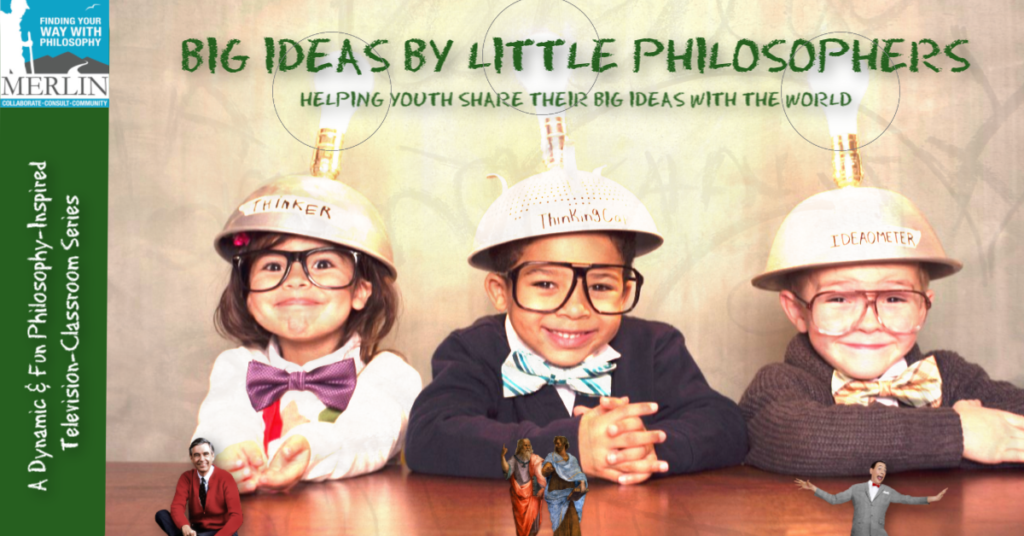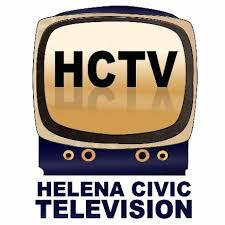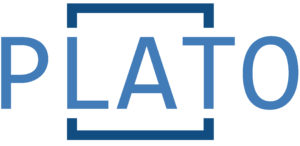
“Big Ideas by Little Philosophers” (BiLP) is a dynamic, philosophy-inspired television-classroom series designed to help youth share their big ideas with the world. A collaborative venture with Helena Civic Television and Cottonwood School, the program combines classroom and one-on-one mentorship, pedagogy, philosophy, and theater. A mash-up of Mr. Rogers, Pee-Wee’s Playhouse, and Socrates, the BiLP program aims to highlight the joy and fun of doing philosophy and the rich philosophical terrain available to and present in our youth.
Our BiLP program places a heavy emphasis on philosophy as process. During phase 1 of our program, our young thinkers dove into philosophy by thinking deeply about topics that were important to them and by doing philosophy.
Our HCTV Video (Philosophy, Time Machines & More)
The first phase of our Spring BiLP program culminated in a fun day at the Helena Civic Television studio where our young philosophers starred in their very own video. Check out the fun below and get to know some of these wonderfully creative thinkers, why philosophy matters to them, and…of yes…let us not forget…the trolley problem!!



Stay tuned for phase 2 of our BiLP program where our young thinkers will be working on turning their own ideas into some form of art and showcasing them at the Reeder’s Alley Block Party in June!
What We Explored
The focus of our initial phase of BiLP involved philosophy as process. With the exception of one day (where we accidentally slipped into “lecture” mode — Aristotle can do that to anyone!), our classroom sessions involved various activities that encouraged our young thinkers to engage in the critical, creative thinking and doing philosophy. Some of the things we explored included:
Using the senses to observe and understand
- Looking, listening, feeling our environment
- Connecting ideas to see how they fit together (or don’t)
- Making distinctions between things and considering context
- Finding beauty; exercising curiosity
- Asking “Why?” a lot (and trying to figure out answers)
Making associations and connections between things
- “Hmmm…it seems like this idea seems similar to this other idea. How so? In what way?”
- Can identifying similarities be helpful for solving “problems”, e.g., maybe how we thinking about one thing can shed light on how we might think about another thing?
Recognizing patterns — Starting with random collection of objects, recognizing similar groupings
- Identifying and thinking about the ways that we categorize things — naming groups (e.g., everything in this group is a kind of tool, everything in this group is made of similar materials, everything in this group has the same shape, organizing by function or use – all of these are used to measure something, etc.)
Thinking about thinking
- We all think. Learning how we think and all of the factors involved with that is important.
- A lot of times we do and say things unconsciously (without being aware that we are doing or saying them). We can increase our awareness about the world and ourselves by “slowing down” and asking ourselves…”wait I just did or said this…..why?” and then examining that further.
Reasonable – Unreasonable spectrum
- We all opinions about things. But are thinking about and believing something enough for the truth of something? We need good reasons to support our thinking about matters, big and small.
Questioning reasons behind beliefs
- “I believe A is the right thing to do.”
- “How did I come to believe A is the right thing to do?”
- “Is it actually the case that A is the right thing to do?”
- “Are there examples where A might not be the right thing?”
- “What do I mean by ‘right’ anyway?”
- “What are my VALUES?”
Looking at different perspectives
- “What do other people believe about A?”
- “What are advantages and disadvantages of their perspective?”
Control-No control spectrum
- “What sorts of things are within our control – e.g., our reactions, responses, thoughts?”
- “What sorts of things are outside of our control – e.g., other people’s reactions/responses?”
- “Why does knowing what is in our control and outside of our control matter?
- “Are there things that can influence the way that we think about and see a situation – e.g., location, temperature, health, hunger, advertising/social media, other variables?”
- “How can we identify and remove some of those influences? Think about your thinking, take stock of your environment, observe and analyze, etc.”
Pictures of the Crew




















Thank You’s
Thank you to Cottonwood ALC & Helena Civic Television for embarking on this fun journey with us & to Philosophy Learning & Teaching Organization and Humanities Montana for helping to fund our 2019 BiLP program!



